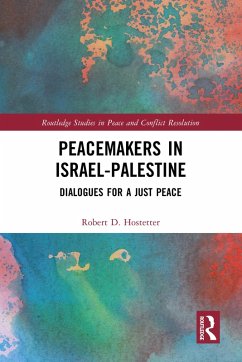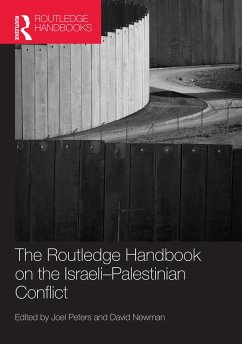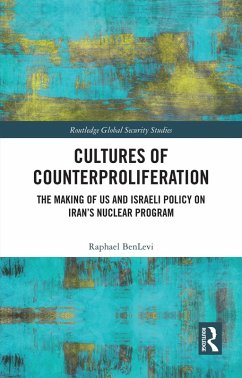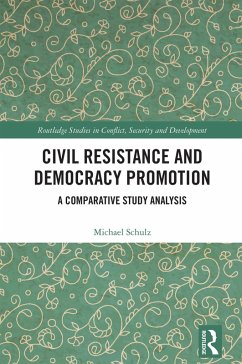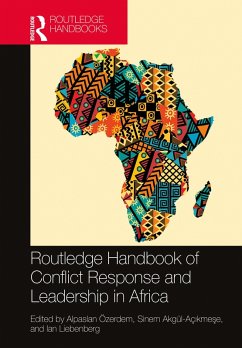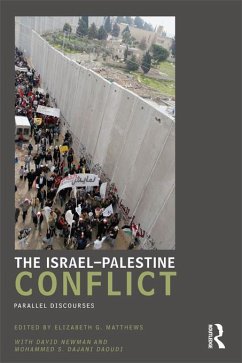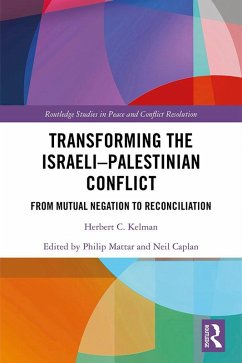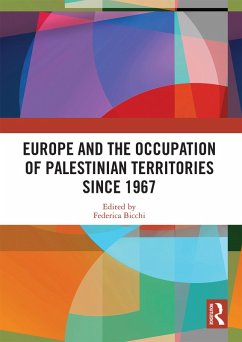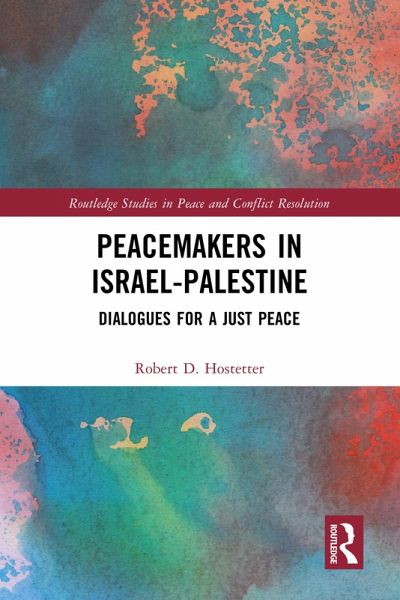
Peacemakers in Israel-Palestine (eBook, ePUB)
Dialogues for a Just Peace
Versandkostenfrei!
Sofort per Download lieferbar
39,95 €
inkl. MwSt.
Weitere Ausgaben:

PAYBACK Punkte
20 °P sammeln!
This book offers an analysis of the major sources of the Israeli-Palestinian conflict and suggests principles and processes for building a peacemaking platform.The primary aim of this book is to analyze the crucial roles and capacities of mid-level, nongovernmental peacemakers as they provide unique approaches to transforming the Israel-Palestinian conflict. It also aims to analyze and experience dialogue as the primary mode of peacemaking communication. The two-part format of this book creates a structural dialogue. Part One provides an academic introduction to the Israeli-Palestinian conflic...
This book offers an analysis of the major sources of the Israeli-Palestinian conflict and suggests principles and processes for building a peacemaking platform.
The primary aim of this book is to analyze the crucial roles and capacities of mid-level, nongovernmental peacemakers as they provide unique approaches to transforming the Israel-Palestinian conflict. It also aims to analyze and experience dialogue as the primary mode of peacemaking communication. The two-part format of this book creates a structural dialogue. Part One provides an academic introduction to the Israeli-Palestinian conflict, why it matters, the role of identities, and strategies for transforming the conflict based on international law and human rights. Part Two is presented in a dialogue format, providing further conflict analysis through storytelling and dialogues with peacemakers.
This book will be of great interest to anyone engaged with peace and conflict transformation, ethnography, social justice, communication studies, and Middle Eastern studies, human rights and international law.
The primary aim of this book is to analyze the crucial roles and capacities of mid-level, nongovernmental peacemakers as they provide unique approaches to transforming the Israel-Palestinian conflict. It also aims to analyze and experience dialogue as the primary mode of peacemaking communication. The two-part format of this book creates a structural dialogue. Part One provides an academic introduction to the Israeli-Palestinian conflict, why it matters, the role of identities, and strategies for transforming the conflict based on international law and human rights. Part Two is presented in a dialogue format, providing further conflict analysis through storytelling and dialogues with peacemakers.
This book will be of great interest to anyone engaged with peace and conflict transformation, ethnography, social justice, communication studies, and Middle Eastern studies, human rights and international law.
Dieser Download kann aus rechtlichen Gründen nur mit Rechnungsadresse in A, B, BG, CY, CZ, D, DK, EW, E, FIN, F, GR, HR, H, IRL, I, LT, L, LR, M, NL, PL, P, R, S, SLO, SK ausgeliefert werden.




